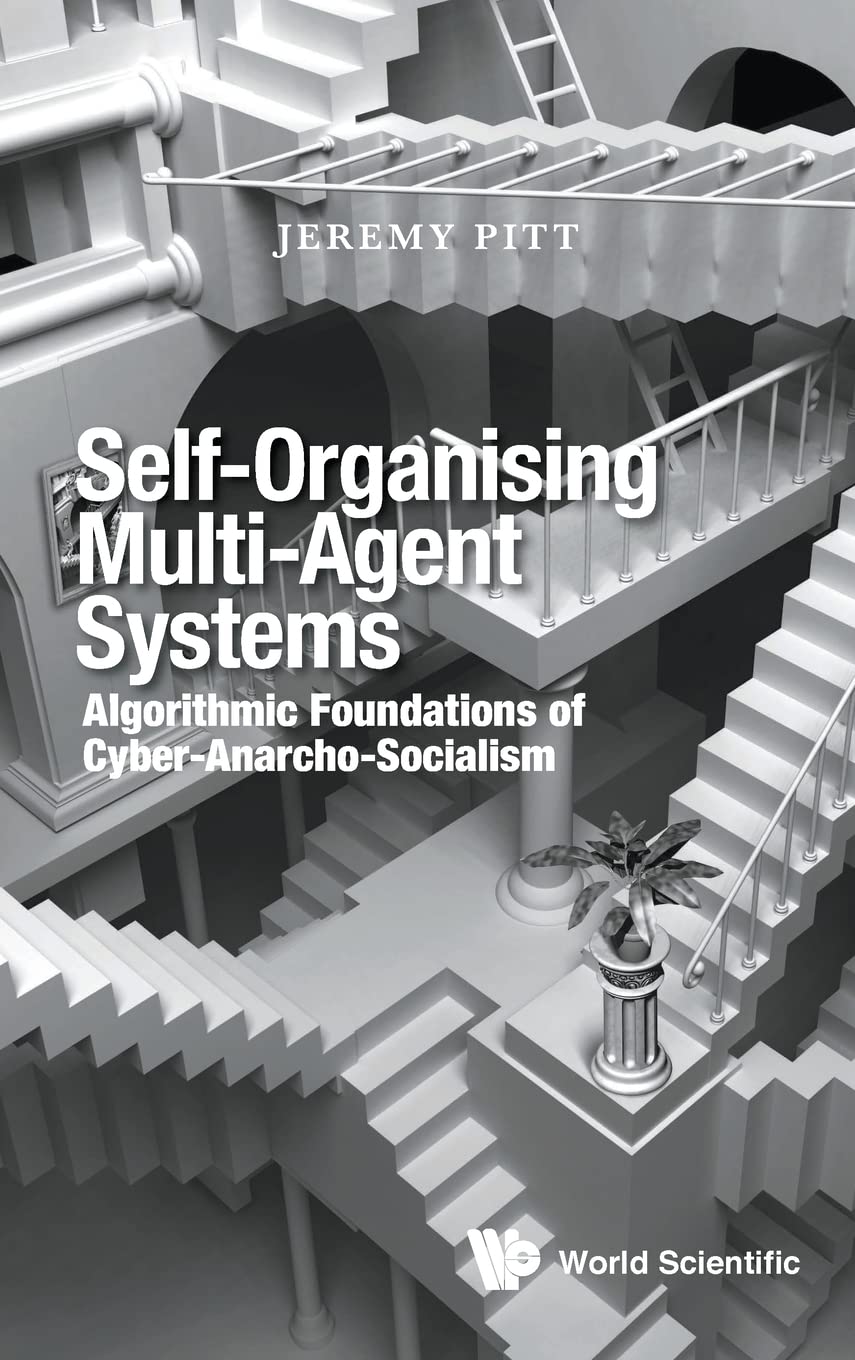Tabs-Resources
The paradigm of self-organisation is fundamental to theories of collective action in economic science and democratic governance in political science. Self-organisation in these social systems critically depends on voluntary compliance with conventional rules: that is, rules which are made up, mutually agreed, and modifiable 'on the fly'. How, then, can we use the self-organisation observed in such social systems as an inspiration for decentralised computer systems, which can face similar problems of coordination, cooperation and collaboration between autonomous peers?
Self-Organising Multi-Agent Systems presents an innovative and systematic approach to transforming theories of economics and politics (and elements of philosophy, psychology, and jurisprudence) into an executable logical specification of conventional rules. It shows how sets of such rules, called institutions, provide an algorithmic basis for designing and implementing cyber-physical systems, enabling intelligent software processes (called agents) to manage themselves in the face of competition for scarce resources. It also provides a basis for implementing socio-technical systems with interacting human and computational intelligences in a way that is sustainable, fair and legitimate.
This interdisciplinary book is essential reading for anyone interested in the 'planned emergence' of global properties, commonly-shared values or successful collective action, especially as a product of social construction, knowledge management and political arrangements. For those studying both computer science and social sciences, this book offers a radically new gateway to a transformative understanding of complex system development and social system modelling.
Understanding how a computational representation of qualitative values like justice and democracy can lead to stability and legitimacy of socio-technical systems is among the most pressing software engineering challenges of modern times. This book can be read as an invitation to make the Digital Society better.
Self-organising multi-agent systems are a powerful engineering paradigm for developing cyber-physical systems using distributed computational intelligence. Applications include, amongst others, smart grids, ad hoc networks, cloud computing, and information processing.
However, basing agent-behaviour on voluntary compliance with conventional rules, that can be re-negotiated and modified at run-time, produces several challenges in self-governance. This includes knowledge management, enforceability, social influence, collective action, and sustainability. There are also some well-known political problems such as the “iron law of oligarchy”, the “paradox of self-amendment”, and path dependency to be addressed.
In this inter-disciplinary course, students will learn the foundations of self-governing multi-agent systems, and understand deep issues concerning self-governance and ‘democracy’. They will be able to apply concepts and theories from philosophy, psychology and political science, in order to specify and implement learning and reasoning algorithms, and to code social simulators. The societal implications for self-governing socio-technical systems combining human and computational intelligence are also discussed.
The Self-Governing Multi-Agent Systems Course consists of 10 lectures, and was first presented at the European Summer School on Artificial Intelligence (ESSAI), Demokritos, Athens, Greece, July 15-19 2024
